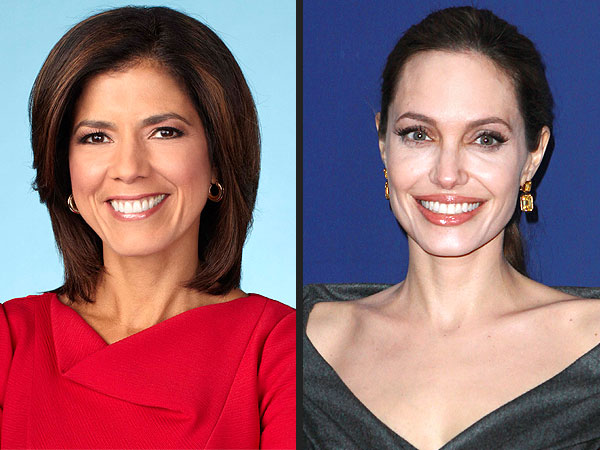
Breast cancer kills approximately 458,000 women world wide, according to the World Health Organization.
Testing for the BRCA1 and BRCA2 genes costs approximately $3,000. With the results, Jolie’s doctors estimated that she had an 87 percent chance of developing breast cancer and a 50 percent risk of ovarian cancer. Because of these numbers and her family with movie star Brad Pitt, Jolie decided to reduce her risk and underwent the surgery.
After Jolie came out in the open with the news of her surgery, CNN anchor Zoraida Sambolin announced on air that she had been diagnosed with breast cancer three weeks ago and was afraid of how she would tell the public.
“You know what? I said that I really struggled. You know, for a while I’ve been struggling because I was diagnosed with breast cancer about three weeks ago, and I was trying to figure out how do I share this story – how to tell the viewers that I’m going to be gone for a while because I have chosen to have a double mastectomy? And so Angelina Jolie’s story really hit home,” Sambolin said on air.
Sambolin, a former NBC Chicago anchor, said that she has scheduled her surgery for May 28.
Ways to Prevent Breast Cancer:
Limit alcohol. If you choose to drink any type of liquor, limit yourself to no more than one drink per day.
Don’t smoke. Accumulating evidence suggests a link between smoking and breast cancer risk, particularly in premenopausal women.
Control your weight. Being overweight or obese increases the risk of breast cancer.
Be physically active. Physical activity can help you maintain a healthy weight, which, in turn, helps prevent breast cancer. For most healthy adults, the Department of Health and Human Services recommends at least 150 minutes a week of moderate aerobic activity or 75 minutes of vigorous aerobic activity weekly, plus strength training at least twice a week.
Breast-feed. Breast-feeding may play a role in breast cancer prevention. The longer you breast-feed, the greater the protective effect.
Limit dose and duration of hormone therapy. Combination hormone therapy for more than three to five years increases the risk of breast cancer. If you’re taking hormone therapy for menopausal symptoms, ask your doctor about other options. You may be able to manage your symptoms with nonhormonal therapies, such as physical activity. If you decide that the benefits of short-term hormone therapy outweigh the risks, use the lowest dose that works for you.
Avoid exposure to radiation and environmental pollution. Medical-imaging methods, such as computerized tomography, use high doses of radiation, which have been linked with breast cancer risk. Reduce your exposure by having such tests only when absolutely necessary.
